-
 Bitcoin
Bitcoin $91,256.3033
3.39% -
 Ethereum
Ethereum $1,723.5244
5.98% -
 Tether USDt
Tether USDt $1.0006
0.10% -
 XRP
XRP $2.1808
2.69% -
 BNB
BNB $611.6352
1.26% -
 Solana
Solana $145.2440
4.71% -
 USDC
USDC $1.0001
0.07% -
 Dogecoin
Dogecoin $0.1726
6.92% -
 TRON
TRON $0.2472
1.71% -
 Cardano
Cardano $0.6638
3.44% -
 Chainlink
Chainlink $14.0337
4.16% -
 Avalanche
Avalanche $21.8740
6.44% -
 UNUS SED LEO
UNUS SED LEO $8.9676
-1.35% -
 Stellar
Stellar $0.2598
-0.15% -
 Sui
Sui $2.4368
8.47% -
 Shiba Inu
Shiba Inu $0.0...01309
4.18% -
 Hedera
Hedera $0.1782
3.94% -
 Toncoin
Toncoin $2.9908
-0.39% -
 Bitcoin Cash
Bitcoin Cash $361.0314
4.64% -
 Hyperliquid
Hyperliquid $18.8127
3.63% -
 Litecoin
Litecoin $82.7354
3.19% -
 Polkadot
Polkadot $3.9250
0.37% -
 Dai
Dai $1.0001
0.03% -
 Bitget Token
Bitget Token $4.5168
0.88% -
 Ethena USDe
Ethena USDe $0.9994
0.01% -
 Pi
Pi $0.6419
0.67% -
 Monero
Monero $219.7573
2.35% -
 Pepe
Pepe $0.0...08517
7.03% -
 Uniswap
Uniswap $5.6768
4.46% -
 Aptos
Aptos $5.1717
0.94%
What can SNX coins be used for? A comprehensive analysis of the application scenarios of SNX coins
Synthetix Network Token (SNX) is a versatile cryptocurrency used for staking, collateral, governance, trading fees, premium features, a deflationary mechanism, platform integration, and speculation within the Synthetix DeFi ecosystem.
Oct 02, 2024 at 01:05 am
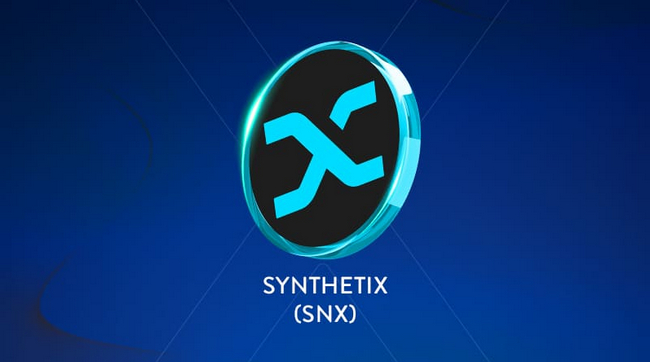
What can SNX coins be used for? A comprehensive analysis of the application scenarios of SNX coins
Synthetix Network Token (SNX) is a decentralized financial (DeFi) platform that allows users to mint and trade synthetic assets, which are blockchain-based derivatives that track the value of real-world assets like stocks, commodities, or currencies. SNX coins are the native cryptocurrency of the Synthetix network and are used for various purposes within the platform.
1. Staking for rewards:
SNX holders can stake their coins to earn rewards in the form of fees generated by the network. Staking helps secure the network and ensures its stability.
2. Collateral for minting synthetic assets:
SNX coins are used as collateral when minting synthetic assets. Minting means creating a synthetic asset that tracks the value of an underlying asset. For example, a user can mint a synthetic stock that tracks the price of Tesla (TSLA) stock by locking up SNX coins as collateral.
3. Governance and voting:
SNX holders can participate in the governance of the Synthetix network by voting on proposals that affect the platform's development and operations. Voting power is proportional to the number of SNX coins held.
4. Fees on synthetic asset trades:
When users trade synthetic assets on the Synthetix platform, a fee is charged. These fees are paid in SNX coins and are used to reward stakers and fund the platform's operations.
5. Access to premium features:
Some platforms offering synthetics may offer additional features or access to advanced trading tools for users who hold a certain amount of SNX.
6. Deflationary mechanism:
The Synthetix protocol has a built-in deflationary mechanism to reduce the supply of SNX coins over time. This helps maintain the scarcity and value of SNX coins while reducing inflation.
7. Integration with other DeFi platforms:
SNX coins can be integrated with other DeFi platforms to enhance interoperability and expand the range of financial services available to users.
8. Trading and speculation:
Like other cryptocurrencies, SNX coins can be traded on cryptocurrency exchanges for speculative purposes and potential profit.
Conclusion:
SNX coins are a versatile cryptocurrency with various applications within the Synthetix DeFi ecosystem. SNX holders can stake their coins for rewards, use them as collateral for minting synthetic assets, participate in governance, and access premium features. As the DeFi space continues to grow, these utility-rich coins play a crucial role in enabling a transparent and accessible financial system.
Disclaimer:info@kdj.com
The information provided is not trading advice. kdj.com does not assume any responsibility for any investments made based on the information provided in this article. Cryptocurrencies are highly volatile and it is highly recommended that you invest with caution after thorough research!
If you believe that the content used on this website infringes your copyright, please contact us immediately (info@kdj.com) and we will delete it promptly.
- Launch of The Echo exchange and its native token, ECHO
- 2025-04-22 23:00:11
- 1933 penny coin could be worth a life-changing sum of money
- 2025-04-22 23:00:11
- ArchVM Launches a Test Version of Its Bitcoin Virtual Machine, Raising $10M in Funding
- 2025-04-22 22:55:13
- Both gold and Bitcoin (BTC) have extended their gains since yesterday
- 2025-04-22 22:55:13
- Mantra (OM) token crash requires a detailed forensic study, not just basic blockchain analysis
- 2025-04-22 22:50:11
- US Bitcoin (BTC) Exchange-Traded Funds (ETFs) Experience Their Largest Single-Day Net Inflow
- 2025-04-22 22:50:11
Related knowledge
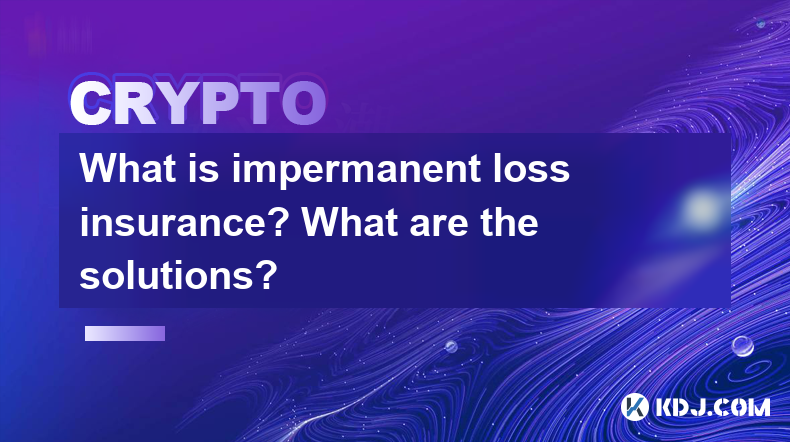
What is impermanent loss insurance? What are the solutions?
Apr 12,2025 at 01:14am
What is Impermanent Loss Insurance? What are the Solutions? Impermanent loss is a significant concern for liquidity providers in decentralized finance (DeFi) platforms. It occurs when the price of tokens in a liquidity pool changes compared to when they were deposited, leading to a potential loss if the provider decides to withdraw their liquidity. To m...
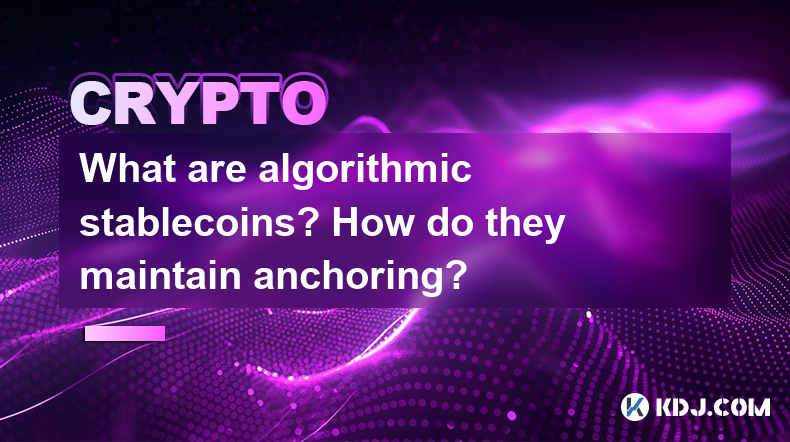
What are algorithmic stablecoins? How do they maintain anchoring?
Apr 12,2025 at 11:35am
Algorithmic stablecoins represent a fascinating and innovative segment within the cryptocurrency ecosystem. These digital assets are designed to maintain a stable value, typically pegged to a fiat currency like the US dollar, through the use of algorithms rather than traditional collateral. This approach distinguishes them from other types of stablecoin...
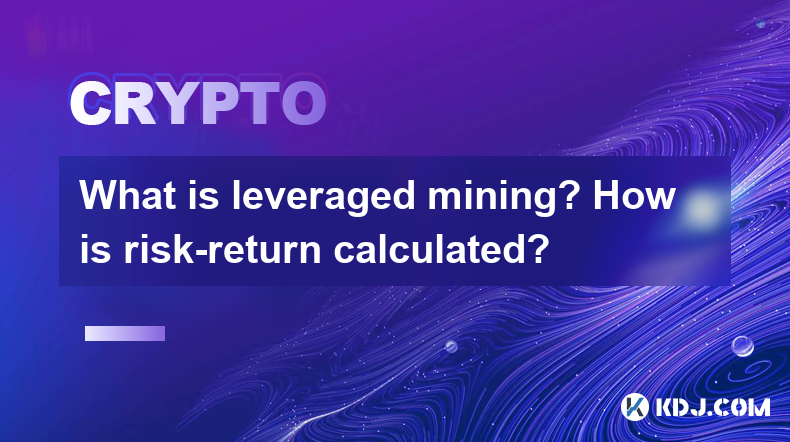
What is leveraged mining? How is risk-return calculated?
Apr 11,2025 at 04:07pm
What is Leveraged Mining? How is Risk-Return Calculated? Leveraged mining is a strategy used in the cryptocurrency space where miners borrow funds to increase their mining capacity and potential returns. This approach can amplify both profits and losses, making it a high-risk, high-reward endeavor. Understanding how to calculate the risk and return asso...
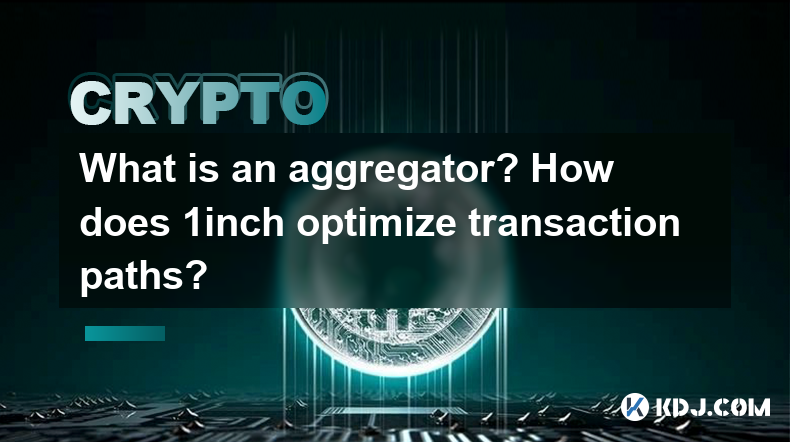
What is an aggregator? How does 1inch optimize transaction paths?
Apr 12,2025 at 05:00pm
An aggregator in the cryptocurrency space is a tool that compiles and compares data from multiple decentralized exchanges (DEXs) to find the best possible trading routes and prices for users. Aggregators are essential for traders looking to optimize their transactions, as they can automatically search through various liquidity sources to ensure the most...
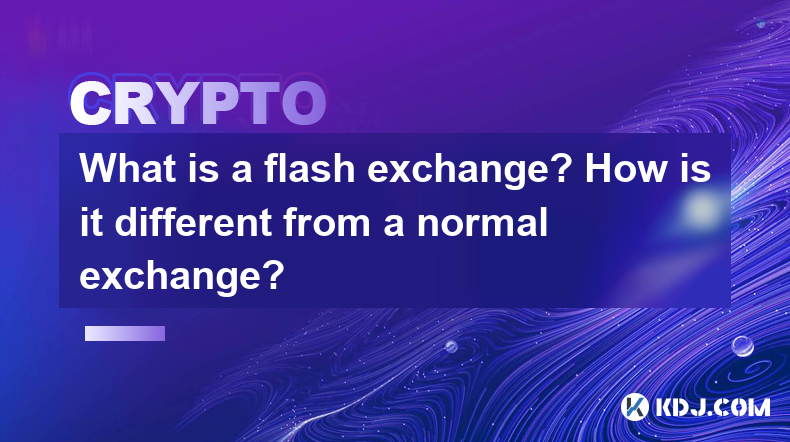
What is a flash exchange? How is it different from a normal exchange?
Apr 16,2025 at 03:43pm
A flash exchange, also known as a flash swap, is a relatively new concept within the cryptocurrency space that has gained significant attention due to its innovative approach to trading. Unlike traditional exchanges, flash exchanges leverage the power of decentralized finance (DeFi) protocols to enable instant, collateral-free trades. In this article, w...
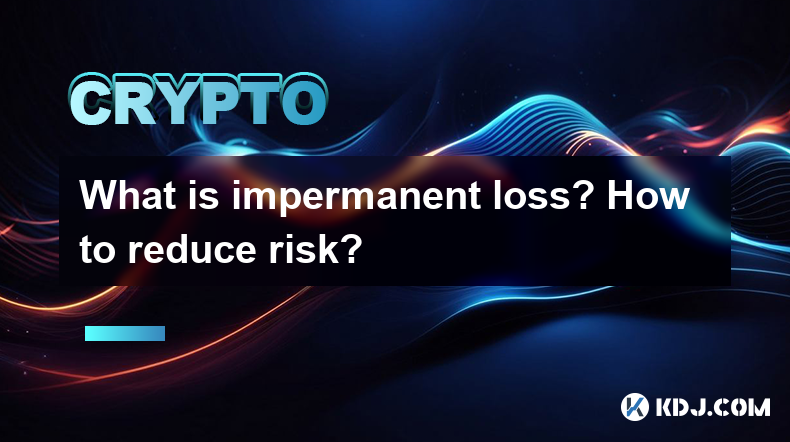
What is impermanent loss? How to reduce risk?
Apr 16,2025 at 11:14pm
What is Impermanent Loss? How to Reduce Risk? Impermanent loss is a term that frequently surfaces in the world of decentralized finance (DeFi), particularly when discussing liquidity provision on automated market makers (AMMs) like Uniswap or SushiSwap. Understanding this concept is crucial for anyone looking to engage in liquidity provision, as it dire...

What is impermanent loss insurance? What are the solutions?
Apr 12,2025 at 01:14am
What is Impermanent Loss Insurance? What are the Solutions? Impermanent loss is a significant concern for liquidity providers in decentralized finance (DeFi) platforms. It occurs when the price of tokens in a liquidity pool changes compared to when they were deposited, leading to a potential loss if the provider decides to withdraw their liquidity. To m...

What are algorithmic stablecoins? How do they maintain anchoring?
Apr 12,2025 at 11:35am
Algorithmic stablecoins represent a fascinating and innovative segment within the cryptocurrency ecosystem. These digital assets are designed to maintain a stable value, typically pegged to a fiat currency like the US dollar, through the use of algorithms rather than traditional collateral. This approach distinguishes them from other types of stablecoin...

What is leveraged mining? How is risk-return calculated?
Apr 11,2025 at 04:07pm
What is Leveraged Mining? How is Risk-Return Calculated? Leveraged mining is a strategy used in the cryptocurrency space where miners borrow funds to increase their mining capacity and potential returns. This approach can amplify both profits and losses, making it a high-risk, high-reward endeavor. Understanding how to calculate the risk and return asso...

What is an aggregator? How does 1inch optimize transaction paths?
Apr 12,2025 at 05:00pm
An aggregator in the cryptocurrency space is a tool that compiles and compares data from multiple decentralized exchanges (DEXs) to find the best possible trading routes and prices for users. Aggregators are essential for traders looking to optimize their transactions, as they can automatically search through various liquidity sources to ensure the most...

What is a flash exchange? How is it different from a normal exchange?
Apr 16,2025 at 03:43pm
A flash exchange, also known as a flash swap, is a relatively new concept within the cryptocurrency space that has gained significant attention due to its innovative approach to trading. Unlike traditional exchanges, flash exchanges leverage the power of decentralized finance (DeFi) protocols to enable instant, collateral-free trades. In this article, w...

What is impermanent loss? How to reduce risk?
Apr 16,2025 at 11:14pm
What is Impermanent Loss? How to Reduce Risk? Impermanent loss is a term that frequently surfaces in the world of decentralized finance (DeFi), particularly when discussing liquidity provision on automated market makers (AMMs) like Uniswap or SushiSwap. Understanding this concept is crucial for anyone looking to engage in liquidity provision, as it dire...
See all articles























































































